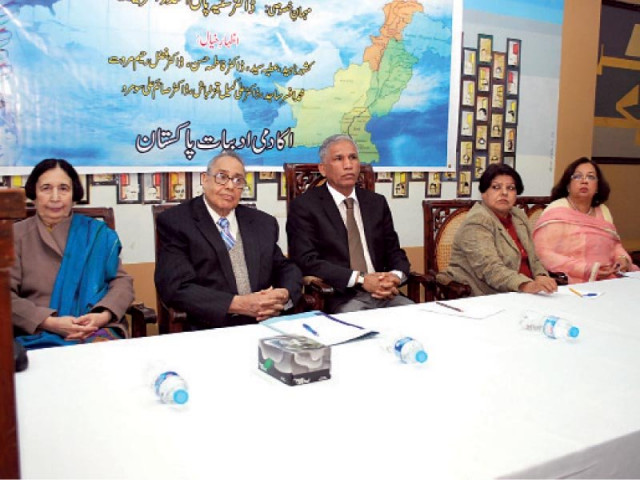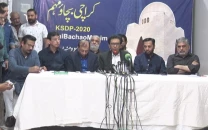Literary seminar: Discussing the (lack of) impact of Urdu literature on the international stage
Just like the language, Urdu literature has absorbed influences from various languages and cultures.

Atiya Syed, Dr Satiapal Aanand, Abdul Hameed, Kishwar Naheed and Dr Fatima Hasan at the seminar. PHOTO: EXPRESS
Just like the language, Urdu literature has absorbed influences from various languages and cultures. Yet it has managed to retain its own essence and individuality.
These ideas were expressed by a panel of literati at a national literary seminar at the Pakistan Academy of Letters (PAL) on Monday.
Renowned writer Dr Sattiya Paul Anand, who settled in America over a decade ago, was the chief guest. PAL Chairman Abdul Hameed presided over the session while the panel comprised of literary figures Kishwar Naheed, Attiya Syed, Dr Fatima Hassan, Dr Saim Ali Soomro and Dr Ali Kumail Qizalbash.
Dr Anand said that after 1947, literature was classified in three eras. There were progressive movements which began under influence from Russian literature, modernism which was ushered under European and American influence and post-modernism which filled the gaps, permitting Pakistani literary figures and scholars to impact literature.
Among prominent novelists, he named Intizar Hussain, Ashfaq Ahmed, Bano Qudsia, Shaukat Siddiqui and Ghulam Abbas. Moreover, he observed that the second generation short-story writers included Anwar Sajjad, Agdulllah Hussain, Khalida Hussain, Mansha Yad, Asad Muhammad Khan and Zahida Khan.

Referring to the innovation of imagery, he said literary works of poets from twin cities in the 1980s deserves prominent mention. This is when a new crop of poets emerged, for which he coined the term “Rawalpindi School of Images”.
These writers are Naseer Ahmed Nasir, Ali Muhammad Farshi, Jalil Aali and Anwar Fitrat among others.
Kishwar Naheed said Urdu writers still focus on social injustice and suppression in their writing.
For instance, the novel “Pyar ka Pahla Shaher” written by Mustansar Hussain Tarar has been translated into Russian language. Novels by Khadija Mastoor and Zahida Hina have also been translated inEnglish, she said.
Dr Hassan said feminist writers around the world complain that their writing has been misinterpreted. In conventional and critical literature, traditional and structural literature is being produced in which ideological coherence prevails.
Hameed said there was a need to focus on translating Urdu literature, so it can have a greater impact on the international stage.
Published in The Express Tribune, March 4th, 2014.



















COMMENTS
Comments are moderated and generally will be posted if they are on-topic and not abusive.
For more information, please see our Comments FAQ